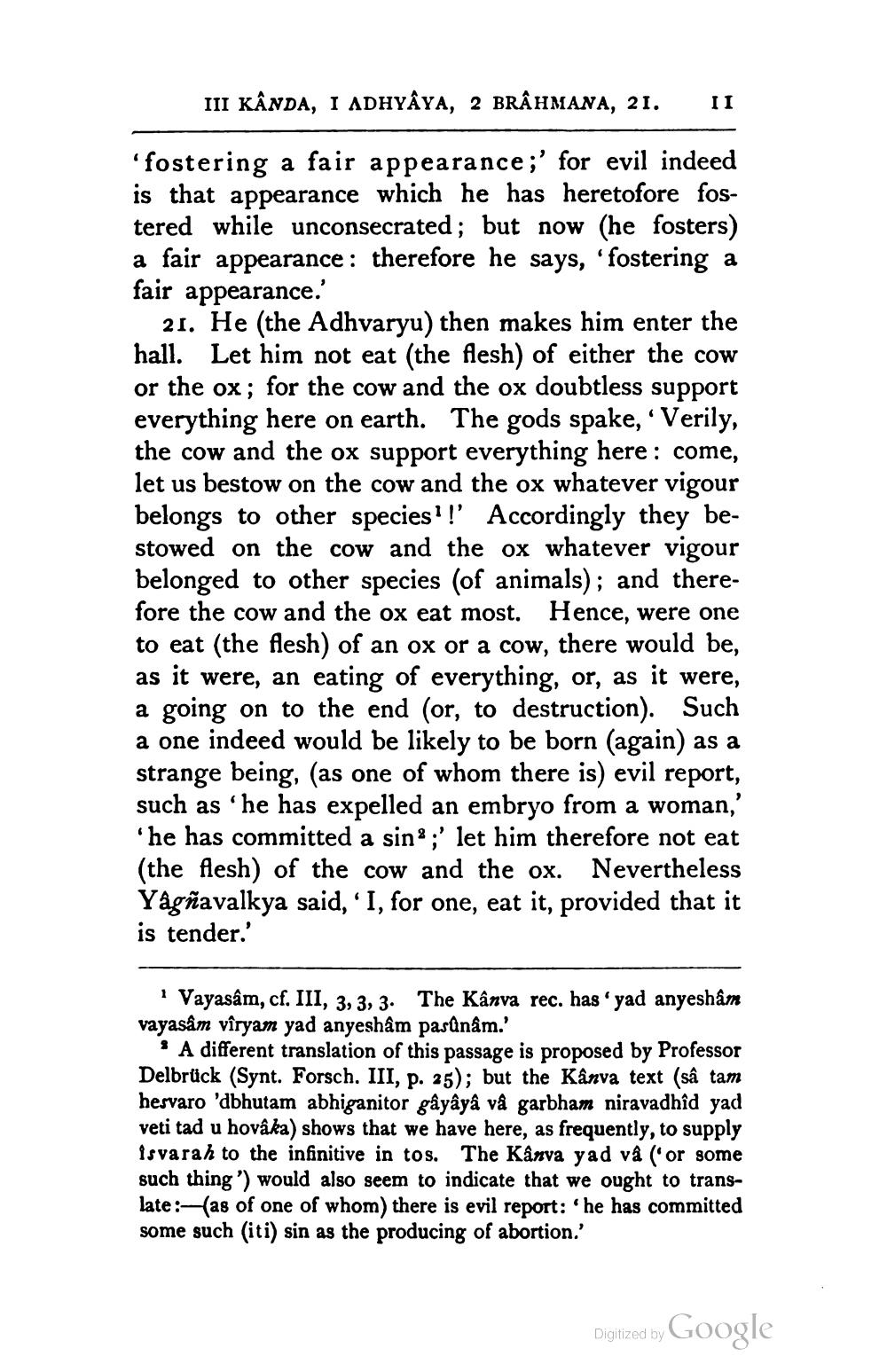________________
III KÂNDA, I ADHYAYA, 2 BRÂHMANA, 21.
II
'fostering a fair appearance;' for evil indeed is that appearance which he has heretofore fostered while unconsecrated; but now (he fosters) a fair appearance: therefore he says, 'fostering a fair appearance.'
21. He (the Adhvaryu) then makes him enter the hall. Let him not eat (the flesh) of either the cow or the ox; for the cow and the ox doubtless support everything here on earth. The gods spake, 'Verily, the cow and the ox support everything here: come, let us bestow on the cow and the ox whatever vigour belongs to other species'!' Accordingly they bestowed on the cow and the ox whatever vigour belonged to other species (of animals); and therefore the cow and the ox eat most. Hence, were one to eat (the flesh) of an ox or a cow, there would be, as it were, an eating of everything, or, as it were, a going on to the end (or, to destruction). Such a one indeed would be likely to be born (again) as a strange being, (as one of whom there is) evil report, such as ‘he has expelled an embryo from a woman,' 'he has committed a sin;' let him therefore not eat (the flesh) of the cow and the ox. Nevertheless Yågñavalkya said, 'I, for one, eat it, provided that it is tender.'
Vayasâm, cf. III, 3, 3, 3. The Kânva rec. has'yad anyeshâm vayasâm vîryam yad anyeshâm pasūnâm.'
* A different translation of this passage is proposed by Professor Delbrück (Synt. Forsch. III, p. 25); but the Kanva text (sâ tam hesvaro 'dbhutam abhiganitor gâyâya va garbham niravadhîd yad veti tad u hovâka) shows that we have here, as frequently, to supply isvarah to the infinitive in tos. The Kanva yad vå (or some such thing') would also seem to indicate that we ought to translate:-(as of one of whom there is evil report: he has committed some such (iti) sin as the producing of abortion.'
Digitized by Google




